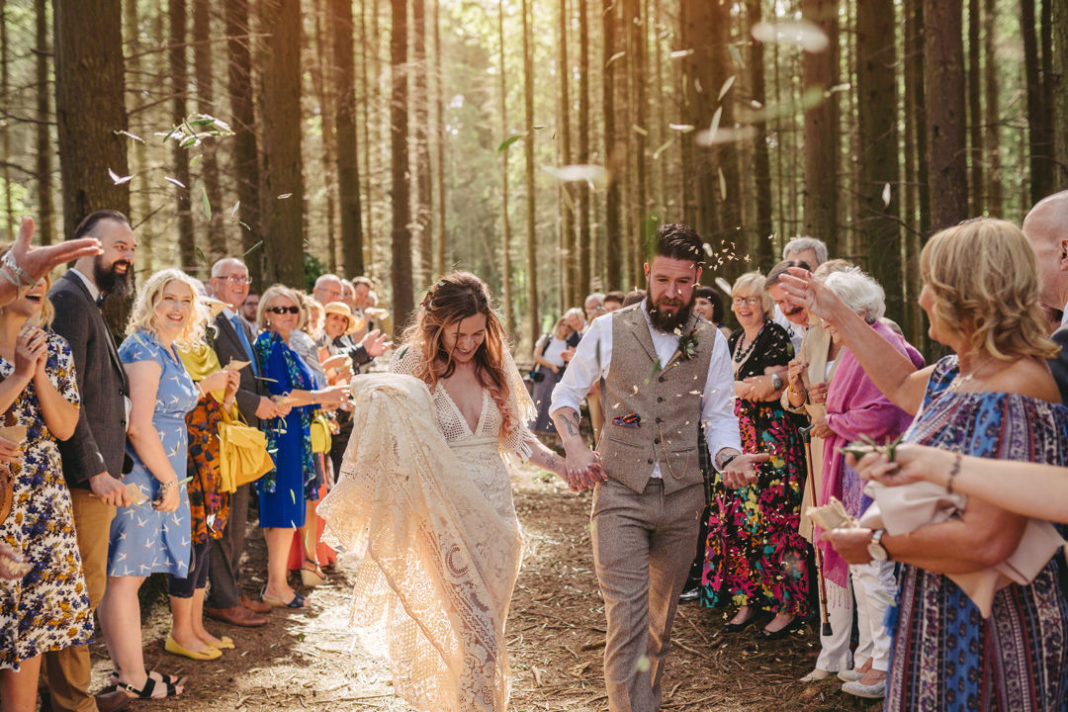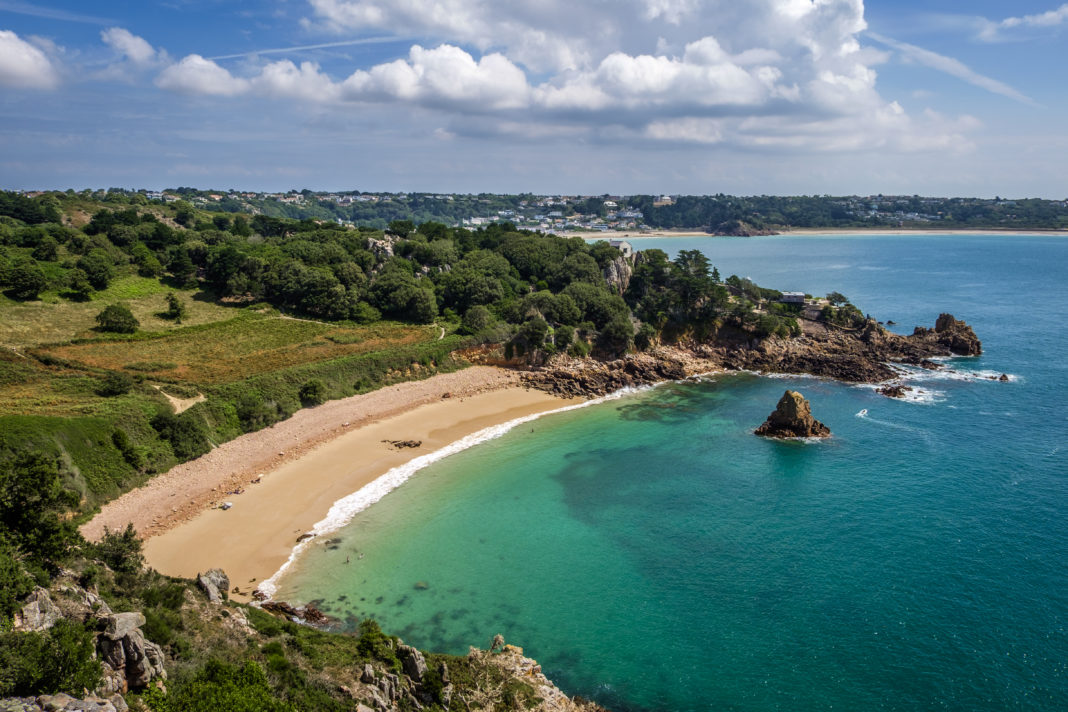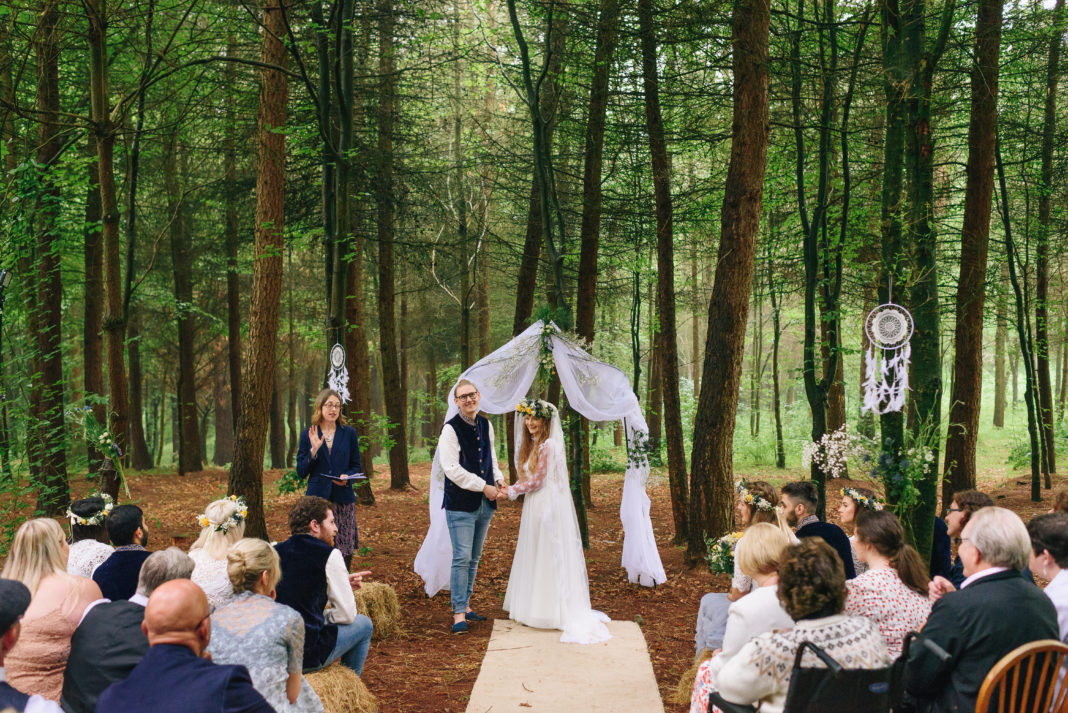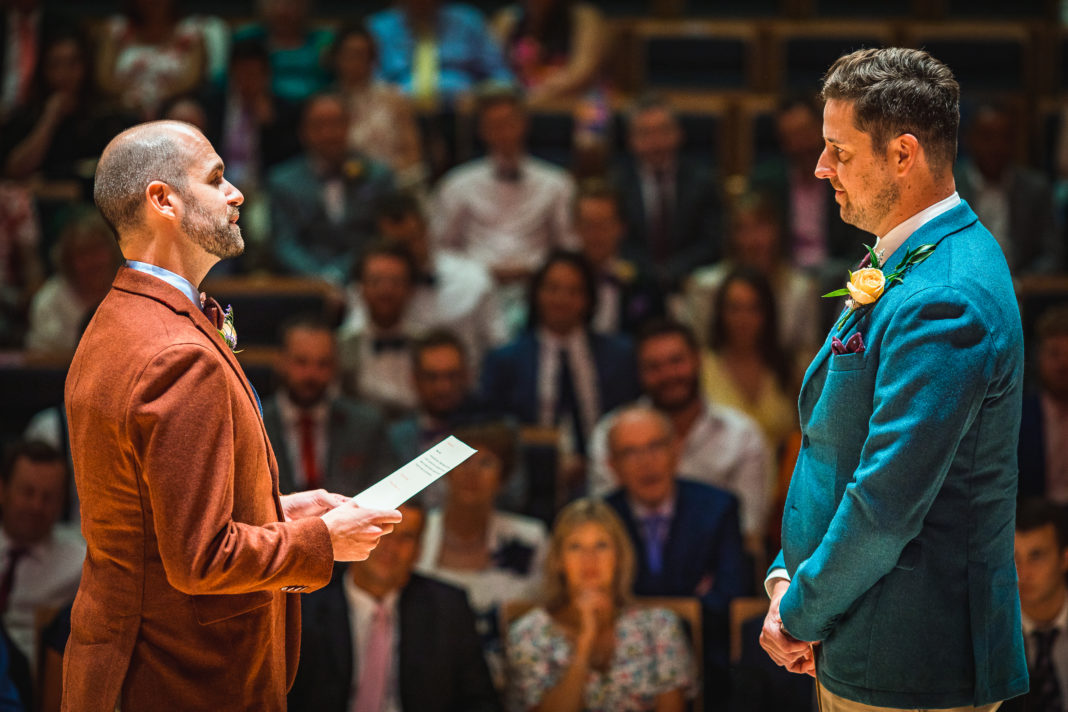Marriage law is different in parts of the UK and crown dependencies. Let’s take a look at each region:
Humanist marriage in Scotland
Humanist marriages have been legally recognised in Scotland since 2005 and are performed by celebrants trained by Humanist Society Scotland.
Recent figures show that humanist marriages are now the number one choice in Scotland for couples wanting to have something more personal than a register office wedding. They account for over 20% of all marriages there. That’s more than Scottish weddings than any religious group!
Humanist marriage in Northern Ireland
In 2018, humanist marriages gained legal recognition in Northern Ireland. Celebrants who are members of the Humanist Ceremonies™ network can conduct legal ceremonies and complete legal documentation as part of a humanist ceremony.
Since they have been legally recognised, numbers of humanist marriages in Northern Ireland have skyrocketed, as more and more people appreciate the opportunity to make their special day all about them, their values, and their love.
The region’s breathtaking natural beauty – lush landscapes, shimmering lakes, and striking coastlines – and beautiful old buildings make it an increasingly popular wedding destination from couples from around the UK.

Humanist marriage in the Channel Islands
Humanist marriages gained legal recognition in Jersey in 2018 and Guernsey in 2021. This is good news not only for locals, but also makes it an ideal location for a destination wedding. There are stunning beaches, breathtaking grassy landscapes, and gorgeous architecture across these little islands, and you don’t have to live there to have a legally recognised humanist wedding in the Channel Islands.

Humanist marriage in England, Wales, and the Isle Of Man
In England, Wales, and the Isle of Man, humanist marriages are not yet legally recognised. That doesn’t mean they’re ‘illegal’ in any way – but it does mean that in these places, couples need to have the ceremony separately from the legal ‘signing of the register’, which is usually done at a local register office a few days before or after a humanist ceremony, or at a separate event on the same day.
Couples almost always choose to think of the humanist ceremony as their ‘real’ wedding – it’s the one attended by all their loved ones, where they made their personal and heartfelt vows, and saw their love expressed most beautifully and most perfectly.
Following the publication of the Law Commission report in July 2022, Humanists UK have called upon the UK Government to give legal recognition to humanist weddings in England, Wales and the Isle Of Man. Read the full story here.

Everywhere
There are no restrictions on where you can have a humanist ceremony, making them an affordable alternative to a civil marriage taking place in a licensed wedding venue.
The couple will always have complete control over the content of your ceremony. Your celebrant will help you unlock your creativity, writing a beautiful script, and suggesting brilliant ways to bring what’s unique about your love to the fore.
You can create your own vows or promises, involve children and family members in symbolic acts such as sand-blending and handfasting, write your own music, and include as many readings as you like. Humanist weddings enable you to have your wedding your way. No two are the same!
Humanist same-sex marriages
Humanist same-sex marriages are legally recognised everywhere humanist opposite-sex marriages are. There is no difference in recognition. This reflects the fact that (apart from in Sark, where recognition is on its way) same-sex marriages are now legal throughout the UK and crown dependencies.

Next steps
If you’re thinking of having a humanist wedding, the next step is to find your ideal celebrant.
For inspiration for your humanist wedding, follow us on Twitter, Facebook, Instagram, and Pinterest.





